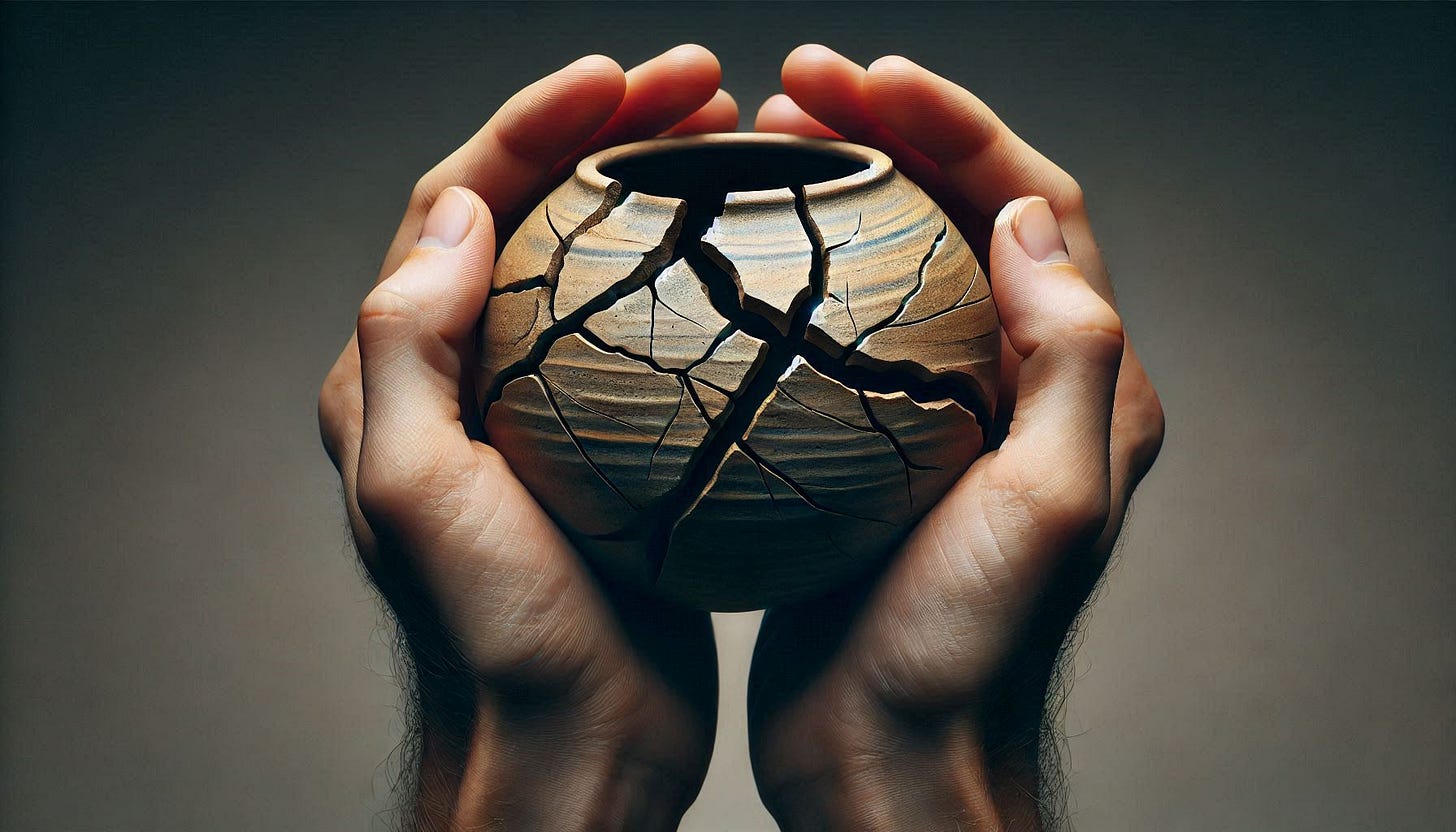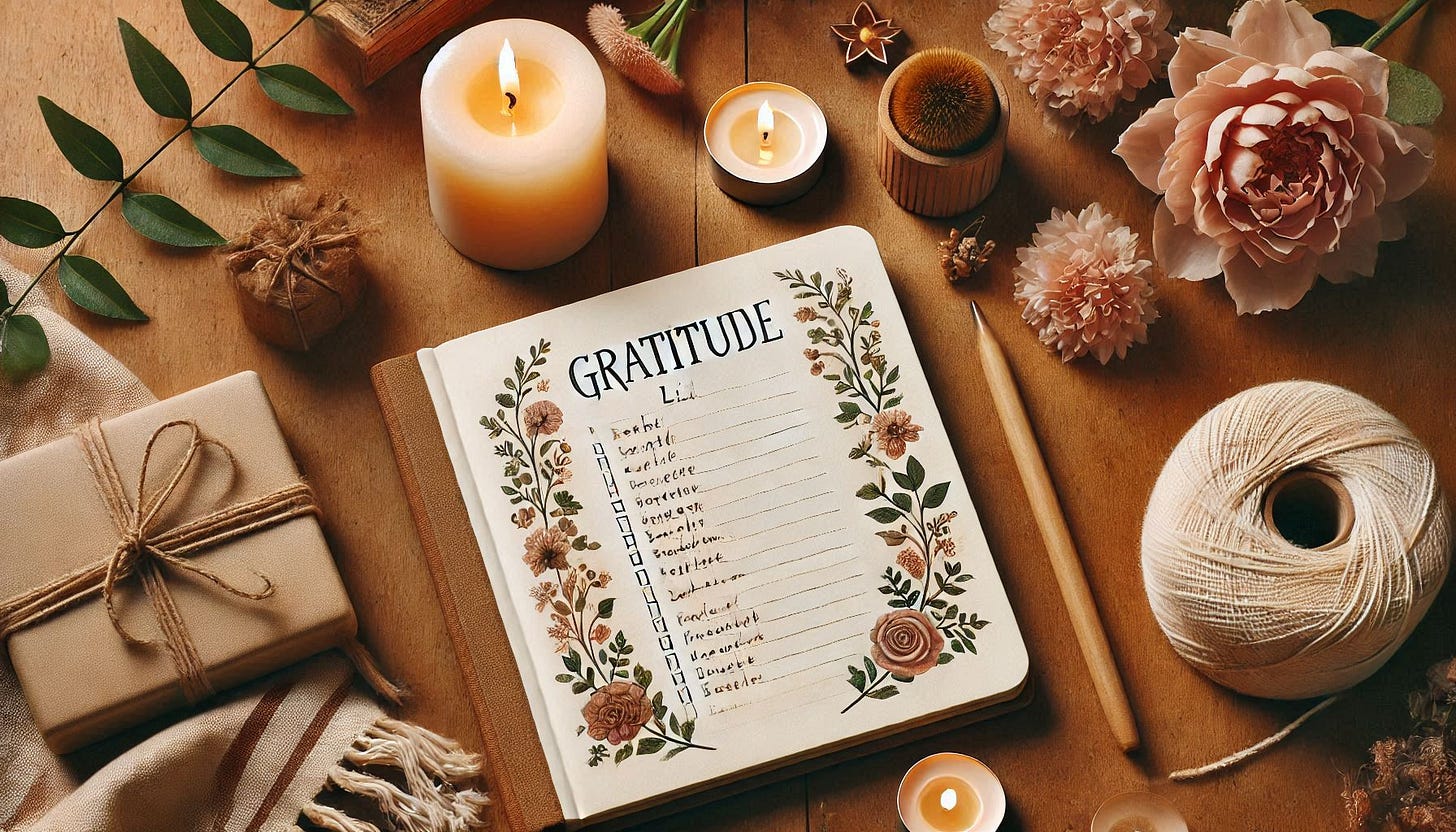A Year of Gratitude - Embracing Imperfections, Differences, and the Joy of Writing
As the year winds down, social media feeds will inevitably fill with curated lists of resolutions, promises to become “new and improved” versions of ourselves, and summaries of achievements.
Let’s take a breath and do something different. What if we look back not to judge or tally, but to reflect and grow?
This year, gratitude crept into my life in unexpected ways - quiet but profound moments that reshaped how I see myself and the world.
Here are the three lessons that stood out.
1. Writing Isn’t Just Expression - It’s Joy in Motion
There’s something magical about writing - even when it’s messy. Whether jotting down a fleeting idea or wrestling with a sentence that refuses to work, the act of writing has been my constant this year. It’s not just a medium of expression; it’s where I found joy, clarity, and yes, a little chaos.
Some days, the words came easily, like water flowing downstream. Other days, they felt more like an uphill climb carrying a boulder. Both experiences brought fulfillment. I learned to appreciate the act itself, not just the outcome. Even half-baked drafts had their charm.
Writing has become my teacher - offering patience, creative freedom, and even the occasional reminder to laugh at my typos (how does one accidentally type “grateful” as “greatful” for the fifth time?).
I’ve come to see writing as less of a chore and more of a playground. It doesn’t have to be perfect; it just has to be mine.
And for this, I owe immense gratitude to those who engage with my work - you - my readers, supporters, and everyone who subscribes, comments, or simply takes the time to like. You make the act of writing even more joyful and meaningful. Thank you for being part of this journey.
2. The Beauty of Imperfection
I’ve spent much of my life pursuing the impossible: perfection. This year, though, I leaned into imperfection, and something surprising happened. I started to love it.
Take my home office, for instance. After years of agonizing over every crooked photo frame or slightly disorganized surface or shelf, I stopped. Instead of fixing imperfections, I began noticing their beauty - the worn edge of a bookshelf that tells a story of use or the books and drafts reshelved improperly - that make them mine.
The same shift happened in my relationships. I stopped expecting flawless understanding and started appreciating the quirks that make people, well, people. When someone mixed up their metaphors or told the same story for the fifth time, I didn’t roll my eyes. I smiled.
At work, embracing imperfection was a revelation. It taught me that flaws aren’t failures; they’re opportunities. A typo in a presentation or a missed deadline isn’t the end of the world - it’s a chance to learn and improve. This mindset made me more compassionate as a colleague and leader. Instead of expecting perfection from others, I focused on fostering an environment where people felt safe to experiment, fail, and grow. When we allow room for imperfection, we unlock creativity and collaboration.
There’s a Japanese philosophy called wabi-sabi, which celebrates the imperfect, the incomplete, and the impermanent. This year, wabi-sabi became my quiet mantra. There’s an unmatched beauty in things as they are - raw, messy, and real.
3. Patience and Empathy for Differences
If there’s one thing this year reminded me of, it’s that the world loves a good argument. Everywhere we look, someone’s debating - over politics, pineapple on pizza, or the correct order to load a dishwasher (plates first, obviously).
Often, I felt the urge to jump into the fray, armed with carefully crafted points. But then, a new thought crept in: What if I listened instead?
It wasn’t easy. Patience takes practice and empathy for polarizing opinions. Some of those polarizing opinions I know are mine. But the more I tried, the more I realized something powerful: understanding someone doesn’t mean agreeing with them. It means seeing their humanity.
This year, I learned to slow down when faced with opposing views. Instead of reacting, I asked, “What makes you feel that way?” “Can you share more about your perspective?” These simple queries opened doors to conversations I never thought possible. They reminded me that behind every opinion - even the polarizing ones - is a person with their own experiences, fears, and hopes.
The practice of patience taught me something about myself, too. I realize how often I jump to conclusions or assume I was right. Letting go of that instinct made room for growth and connection. In professional settings, this shift helped me work better with colleagues whose approaches differed from mine. In personal relationships, it deepened my understanding and strengthened bonds.
We live in a world where it’s easy to dismiss or even vilify those who disagree with us. But what if we try something different? What if we meet polarization with curiosity instead of defensiveness? The reward isn’t just a more rewarding conversation - it’s a richer understanding of the human experience.
Looking Forward with Gratitude
So here I am, wrapping up the year not with a checklist of goals but with gratitude for the lessons it offered. Writing gave me joy and creative freedom. Imperfection taught me to embrace the beautiful mess of life and inspired more compassionate leadership. And patience for differing opinions reminded me of the shared humanity that unites us all.
As we step into the new year, I’ll carry these lessons forward. No promises to overhaul my life or become someone new - just a quiet commitment to keep growing, learning, and finding beauty in the unexpected. Because sometimes, the best things aren’t planned. They’re discovered.
To anyone reading this: thank you. For your presence, your time, and your own imperfect, wonderful contributions to this world. May your year ahead be filled with joy - in whatever shape it takes.
And if you find yourself debating pineapple on pizza, remember: it’s okay to agree to disagree. Just don’t mess up the dishwasher order.
Happy New Year!
Adi








